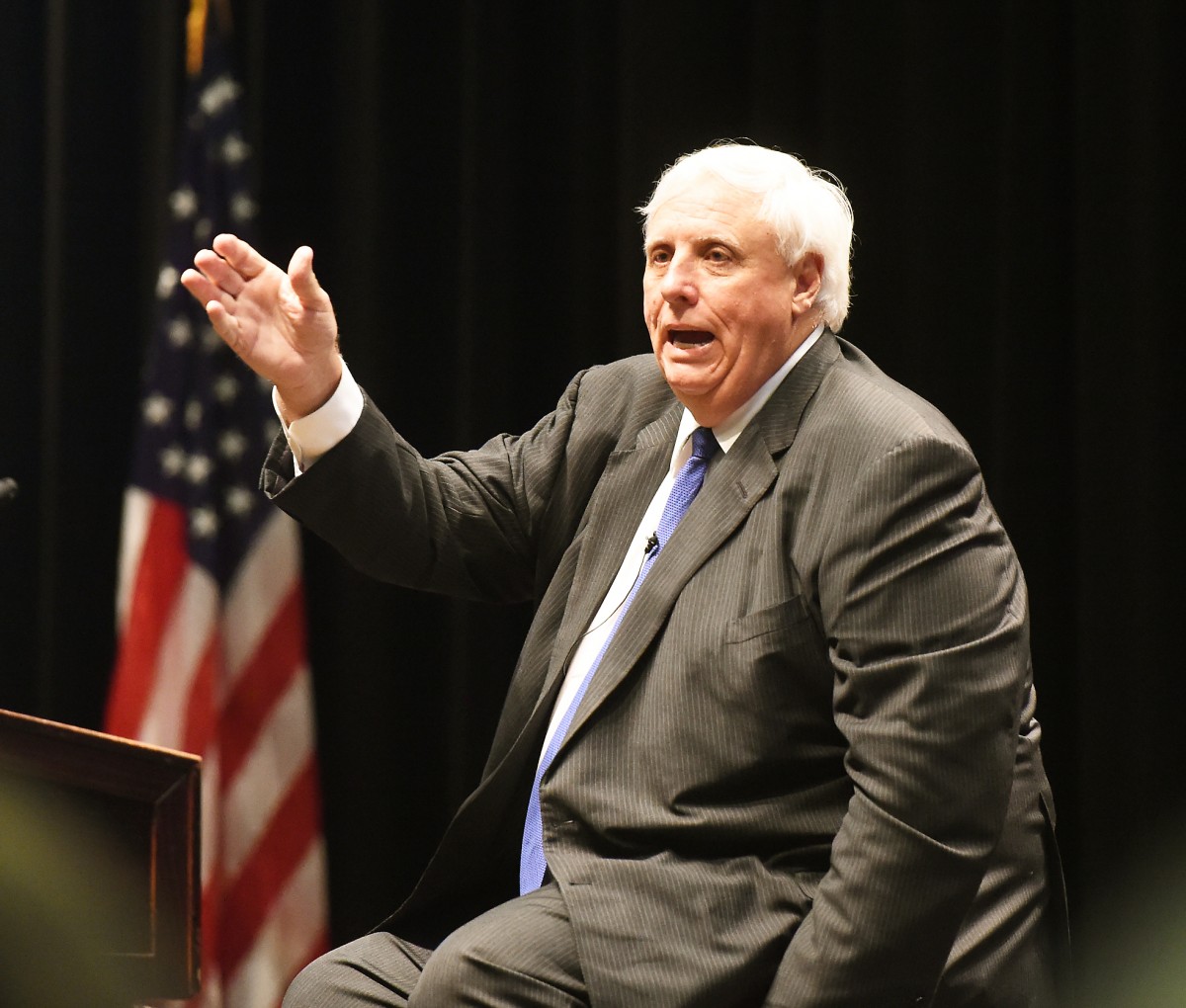MORGANTOWN — Gov. Jim Justice floated an idea to help fix the Public Employee Insurance Agency (PEIA) to West Virginia educators Tuesday: Require spouses who make more than $150,000 to go off PEIA and pay for their own insurance.
Justice made a semi-surprise appearance at the state Department of Education’s Summer Summit for Educational Excellence — held at the event center at the Morgantown Marriott at Waterfront Place — and delivered one of his familiar off-the cuff pep talks. This one on his support for education and educators.
“I want to tell you just this from the very bottom of all my heart: I love you,” he said. “I think you do a great job.”
Schools are the primary factor for people and businesses considering a move, he said a bit later.
“You are the centerpiece. You are the very product that everybody looks at first and says, ‘I want to come to West Virginia.’ … We’ve made people know on the outside just how good we know we really are. We’ve given ourselves hope.”
Justice mostly recapped his efforts to overcome the years of budget deficits that faced him when he took office, this year’s economic turnaround and the 5 percent raises passed during the last session.
He talked about the listening tours he made during his campaign.
“I’ve never seen a group of people that were more sincerely dedicated to what they wanted to do and were more demotivated. They felt like they were unappreciated. They felt like they were just beat down. You were.”
Then came the 2018 legislative session and the statewide educator walkout that flooded the halls of the Capitol and overwhelmed the final weeks of the session.
“We went through a pretty rocky road,” he said, “with people being not happy and people showing their discontent.”
But the raise was passed, and the PEIA task force was formed. “And I think we came out of it with real progress,” he said.
Turning to fixing PEIA, Justice said, “We’re going to get this done. The only way really that we’re going to get it done is the state’s going to have to belly up to the bar and really participate.”
He wasn’t specific about what that bellying will involve — the task force is still at work — but he did float the spouse idea. He said he rejected two related proposals: Kick spouses off altogether or kick off those making more than $50,000.
But the high-income idea could get some participants off the health insurance program and help keep premiums affordable. “It won’t be much. It won’t even be significant at all.”
The applause when Justice took the stage was warm and loud. They were quieter and briefer when he exited.
Brittney Barlett, an Upshur County teacher, commented afterward, “I felt it was a strangely political speech for a summit meant to promote education, somewhat self-serving.”
Regarding Justice’s PEIA idea, she said, “For someone over $150,000, that might be reasonable. I’m not sure that that will actually take care of much of the issue.”
Natalie Webb, principal at North Elementary in Morgantown, said, “I thought it was encouraging to know he has our back and to know he supports what our vision is for education.”
But as Justice observed, the PEIA idea may not do much.
“We kind of laughed at our table,” Webb said. “There’s not going to be very many teachers whose husband makes over $150,000. I don’t know of anybody that would really affect. It might affect 2 percent of the teacher population, and they are more likely to be on their husband’s insurance.”
But Justice’s overall vision is right, she said.
“I agree with him that in order to make our image better, our education system has to be front and center. We’re not going to attract quality people and retain quality people if we can’t pay them.”
Teachers pay for supplies out of their own pockets not because their principals refuse to help, she said, but out of a sheer sense of dedication. It affects morale when people can’t be compensated in the way they deserve.
People graduating from West Virginia’s teaching programs aren’t even trying to seek jobs here, she said. They’re looking to other states. “It’s an automatic exodus. That needs to stop.”
A large number of teachers are approaching retirement.
“We need to get quality people in the classroom to take their places,” she said. “What are we going to do to attract people to stay, to attract people to come here? … Put your money where your mouth is.”




